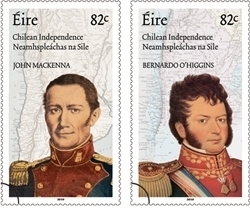
In December 2018, the Keough-Naughton Institute for Irish Studies co-organized two conferences in Santiago, Chile. The aim was to explore themes related to colonialism, independence, nationhood, and democracy in Chile and the Americas as a whole, as well as Ireland’s historical, cultural, and contemporary links with Chile and Latin America.
The impetus for these explorations was the 200th anniversary of the Declaration of Chilean Independence, promulgated in 1718 by Bernardo O’Higgins, widely considered “the father” of Chilean independence. A son of Ambrose O’Higgins, the Irish-born Viceroy of Peru, it was Bernardo O’Higgins who led the Independence Army across the Andes and defeated the Royalists in early 1818. Honored in Ireland as well as Latin America, a bust of O’Higgins is prominent in Dublin’s Merrion Square.
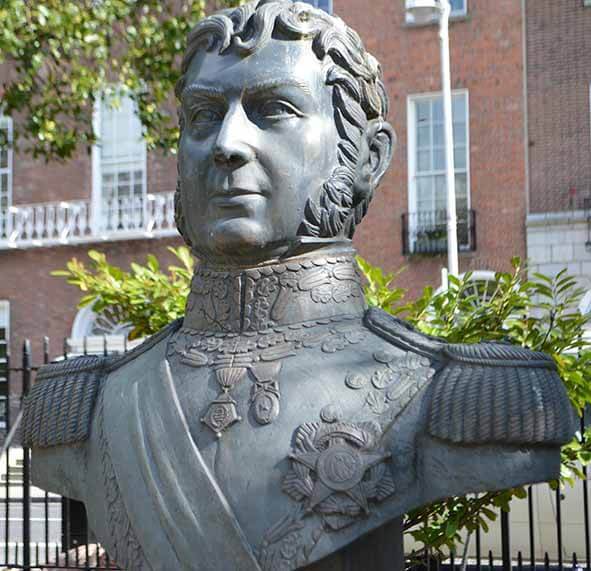
“Independence, Revolts, and the Early Americas”
The first of the two linked conferences, “Independence, Revolts, and the Early Americas,” was convened by Andrew O’Shaughnessy, the Saunders Director of the Robert H. Smith International Center for Jefferson Studies at Monticello, with Patrick Griffin, Madden-Hennebry Professor of History and Director of the Keough-Naughton Institute for Irish Studies, the University of Notre Dame. Notre Dame International’s Santiago Global Center and Santiago’s Pontificia Universidad Católica de Chile (PUC) were key partners as well. The Global Center provided guidance and logistical support, and the Center’s institutional partner, the PUC, provided a beautiful setting for the conference.
“Independence, Revolts, and the Early Americas” took the form of an intensive roundtable of 22 leading scholars from the United States and Latin America. Over three days, the scholars gave papers on such themes as “Anti-Colonialism and Race in the Age of Revolution” (Marixa Lasso, Universidad Nacional de Colombia) and “The Tyrants of the North: Jefferson and Latin American Independence” (Frank Cogliano, University of Edinburgh). Through lively discussions over three days, the scholars shared insights, identified themes and connections, and probed similarities and differences between independence movements throughout the Americas.
“The conference was superb,” said Professor Griffin. “It demonstrated to all participants the convergence of what had been two distinct fields. It allowed for a meeting of minds and for a whole new possibility of seeing North and South America intimately linked during of a period of momentous change.”
Participants
- Thomas Bartlett, University of Aberdeen, emeritus
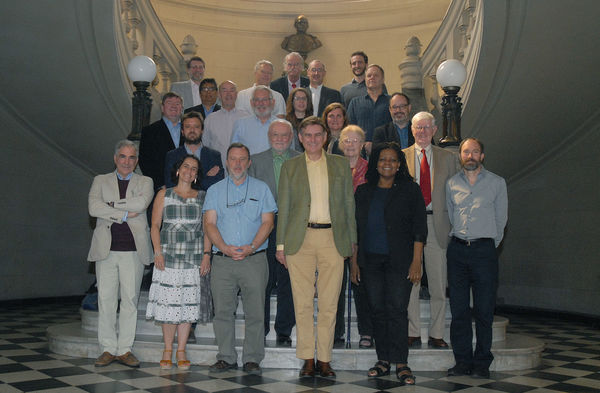
- Ted Beatty, University of Notre Dame
- Peter Blanchard, University of Toronto, emeritus
- Trevor Burnard, University of Melbourne
- Amy Turner Bushnell, College of Charleston, emeritus
- Frank Cogliano, University of Edinburgh
- Christa Dierksheide, University of Missouri
- Julia Gaffield, Georgia State University
- Annette Gordon-Reed, Harvard University
- Eliga Gould, University of New Hampshire
- Jack Greene, Andrew W. Mellon Professor Emeritus in the Humanities, John Hopkins University
- Patrick Griffin, Madden-Hennebry Professor of History and Director of the Keough-Naughton Institute for Irish Studies, University of Notre Dame
- Marixa Lasso, Universidad Nacional De Colombia
- Anthony McFarlane, University of Warwick, emeritus
- Andrew O'Shaughnessy, Vice President of Monticello, the Saunders Director of the Robert H. Smith International Center for Jefferson Studies at the Thomas Jefferson Foundation, and Professor of History at the University of Virginia
- Peter Onuf, Thomas Jefferson Foundation Professor Emeritus, University of Virginia
- Juan Luis Ossa, Universidad Adolfo Ibáñez, Santiago
- Eduardo Posada-Carbó, University of Oxford
- Sergio Serulnikov, Universidad de San Andrés, Buenos Aires
- Joshua Simon, Columbia University
- Charles Walker, University of California, Davis
- Gordon Wood, Alva O. Way University Professor Emeritus, Brown University
“Ireland and Latin America: Globalizing Irish Studies - The Idea of a Nation and Narratives of Independence”
The second, larger conference, “Ireland and Latin America: Globalizing Irish Studies - The Idea of a Nation and Narratives of Independence,” was the inspiration of Convener Justin Harman, former Ambassador of Ireland to Argentina. The Keough-Naughton Institute was a prime partner and organizer, along with the Government of Ireland, several Latin American universities, and several Irish studies’ associations, including the Asociación de Estudios Irlandeses del Sur. For this conference, too, the Santiago Global Center and the PUC provided invaluable logistical support and beautiful venues, in particular, the magnificent book-lined Aula Magna Manuel José Irarrázaval.
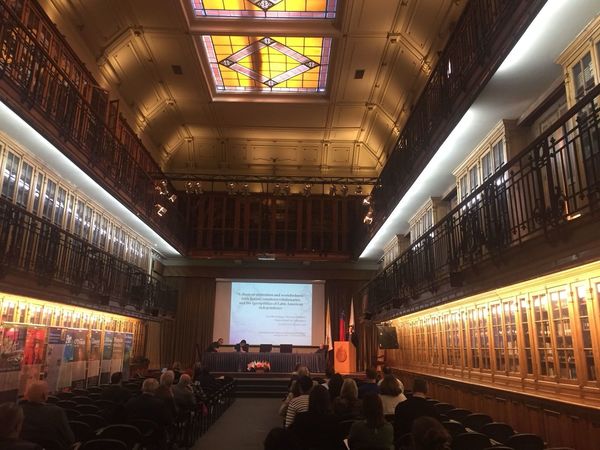
This conference was dedicated to exploring the “worlding” of Irish studies in national and international contexts and to interrogating historical and contemporary relationships between Chile, Latin America, and Ireland—from a multitude of perspectives and disciplines, and at different points of time.
The themes of the many keynotes and panels ranged from colonial to contemporary times, and covered history, literature, culture, and politics.
A sampling of conference sessions:
- “Old and New Nations: Identities in Transition through Irish Diasporic Eyes” (Laura Izarra, Universidade de São Paulo)
- “Age of Atlantic Revolutions” (Thomas Bartlett, University of Aberdeen, emeritus; Annette Gordon-Reed, Harvard University; Peter Onuf, University of Virginia, emeritus; Juan Luis Ossa, Universidad Adolfo Ibáñez, Santiago)
- “Ex-isles: The cases of Joyce and Neruda” (Enrico Terrinoni, Universita per Stranieri di Perugia, Italy)
- “Popular Culture and Nation: Ireland, Chile and Argentina” (Diarmuid Ó Giolláin, Notre Dame)
- “Argentina and Ireland in the 20th Century – A Diplomatic History” (Dermot Keogh, University College Cork)
- "Women's Voices in the National Imaginary of the Southern Cone Countries: Early Activists of the 20th Century and Women Authors," María Rosa Olivera-Williams, University of Notre Dame
- “Contemporary political and economic perspectives: Chile and Latin America” (Ignacio Walker, Senior Research Fellow at Corporación de Esutido para Latinoamérica and former senator; Rodrigo Valdés, School of Government, PUC, and former Minister of Finance, Chile; Claudio Orrego, former Intendente (governor) of Santiago
The conference embraced the arts for the unique perspectives they offer on the themes of nationhood and independence. Organizers featured music (“Joyce Song,” Fran O’Rourke, University College Dublin); film (1916 the Irish Rebellion, Christopher Fox and Bríona Nic Dhiarmada, University of Notre Dame), painting and sculpture (Rita Duffy, Ireland), and theatre (“Theatre and National Identity” by Oscar Barney Finn, Argentina and Héctor Noguera, Chile.)
Students—postdoctoral, graduate, and undergraduate—were a vital part of this memorable conference. They came from Latin America, the United States, Ireland, and other European countries. Some presented papers; others were active listeners and participants formally and informally.
Testimonials of Participants in the Conferences
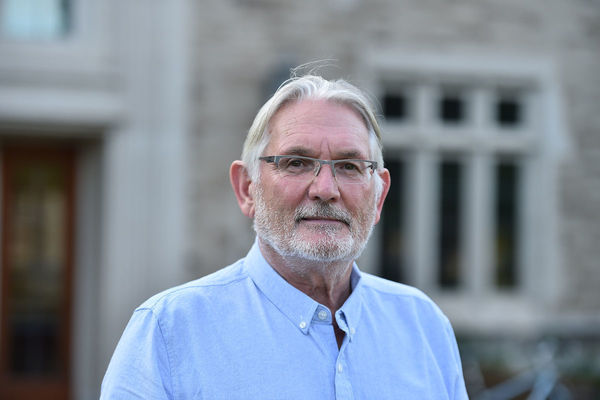
Thomas Bartlett
General Editor of the four-volume Cambridge History of Ireland (2018))
Paper: “Viewing and Acting: Irish Revolutionaries and South America, 1780-1820,” delivered at the "Independence, Revolts, and the Early Americas" conference
The conference hosted by the Monticello Foundation and the Keough-Naughton Institute was quite superb. It was tightly focused on the theme of 'The Age of Revolutions' in the greater Atlantic world, and it brought together leading experts in the various fields—history , culture, political science, and law—that are in play here. Notably, there was a welcome determination to engage with each other's papers and to highlight convergences and divergences, similarities and disconnects between, say, St. Domingo, Jamaica, France, Ireland, Quebec, and, of course, Latin America, in the period under review. Overall, I have to say that the conference was one of the most stimulating that I have ever attended. If I say that it was inspirational, I am not exaggerating.
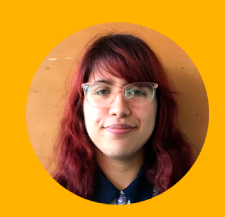
Roxana Toloza Chacon, Pontificia Universidad Católica de Chile, Undergraduate student in Literature
Participant in the “Ireland and Latin America” conference
I went to the conference with expectations to learn from the panels; I'm always interested in seeing what scholars are doing and learn from them. However, what I took most was the opportunity to interact with so many people from different places. As the (usually) only undergrad, it's sometimes hard to approach other attendees/presenters, but the warm welcome I received helped a lot!
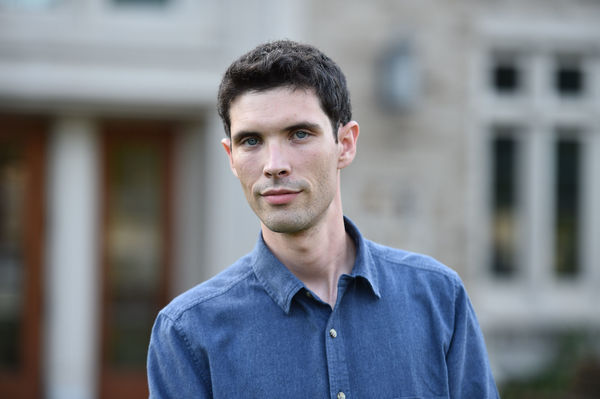
José Shane Brownrigg-Gleeson Martínez,
University of Salamanca and NUI Galway/National Endowment for the Humanities Fellow at the Keough-Naughton Institute, 2017-2018
Paper: “‘A chaos of contention and wretchedness’: Irish heroes, counterrevolutionaries and the (geopolitics) of Latin American independence”, delivered at the “Ireland and Latin America” conference
The conference “Ireland and Latin America – Globalizing Irish Studies” was a testament to the current vitality of Irish Studies in and about Latin America. Together with showcasing the quality of the growing body of scholarship on the past and present connections between Ireland and the Southern Cone, the spread of papers offered a particularly good representation of the notable opportunities and challenges that lie ahead. As an early career researcher aspiring to develop the study of Irish history, literature and culture outside of the Anglophone world, I was also very impressed by the organizers’ capacity to work transnationally and across linguistic divides.

Julian Dean
English Graduate Student and Irish Studies Graduate Minor, University of Notre Dame
Paper: “Visions of Emancipation: Transnational Esotericism and the Nation in Yeats’ On Bailes’s Strand,” delivered at the “Ireland and Latin America” conference
As a young scholar at the “Globalizing Irish Studies conference,” I was able to engage with top scholars in the field of Irish and Decolonial Studies from around the world. In one evening, I was able to discuss similar projects through disparate means with scholars from Argentina, Brazil, Italy, Ireland, and the United States. I heard papers from graduate students and Pulitzer Prize-winners in the same room. My trip, made possible by the Keough-Naughton Institute for Irish Studies and the Graduate School, certainly benefited me as a scholar. I was able to discuss my project on Yeats and nationalism with the premier scholars in my field and hear their feedback.
Sponsors, organizers and funders of the two linked conferences include:
Keough-Naughton Institute for Irish Studies, University of Notre Dame
Robert H. Smith International Center for Jefferson Studies at Monticello
Notre Dame Global Centre, Santiago, Notre Dame International
Pontificia Universidad Católica de Chile
Department of Foreign Affairs and Trade, Ireland
The Institute for the Scholarship in the Liberal Arts, College of Arts and Letters, University of Notre Dame
Notre Dame International Luksic Family Collaboration Grant
The Helen Kellogg Institute for International Studies, University of Notre Dame
Universidad del Salvador, Buenos Aires
AEIS – Asociación de Estudios Irlandeses del Sur
Catedra Extracurricular de Estidos Irlandeses, Universidad del Salvador, Buenos Aires
ABEI – Associação Brasilelira de Estudos Irlandeses